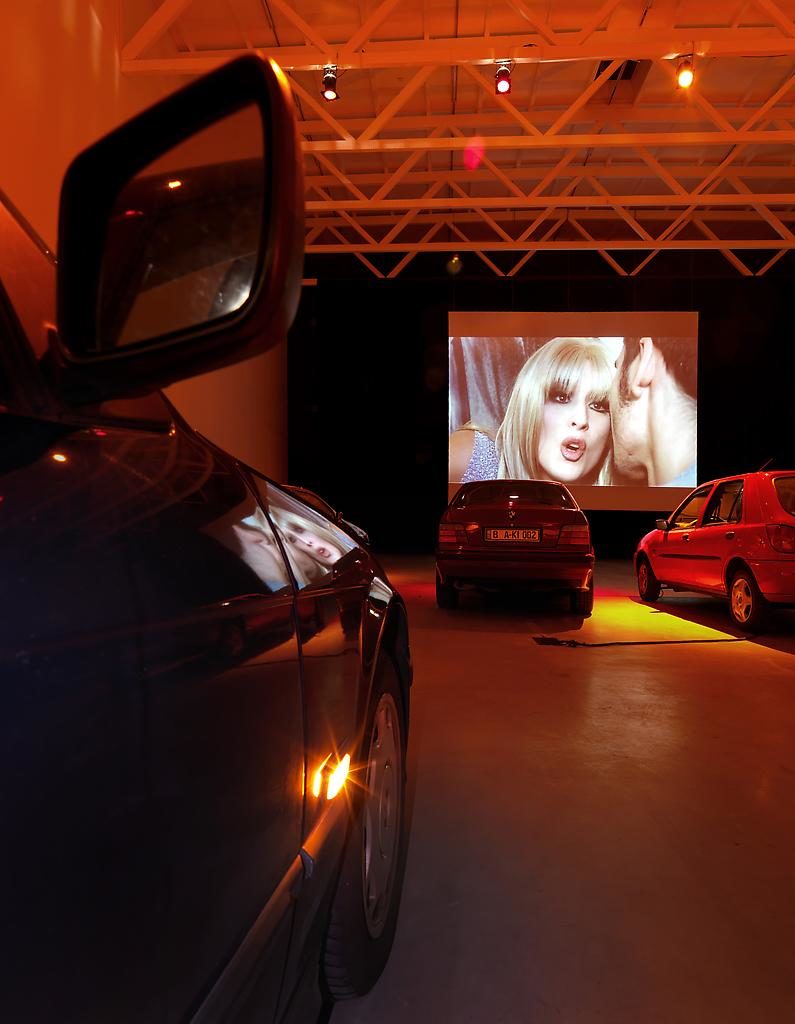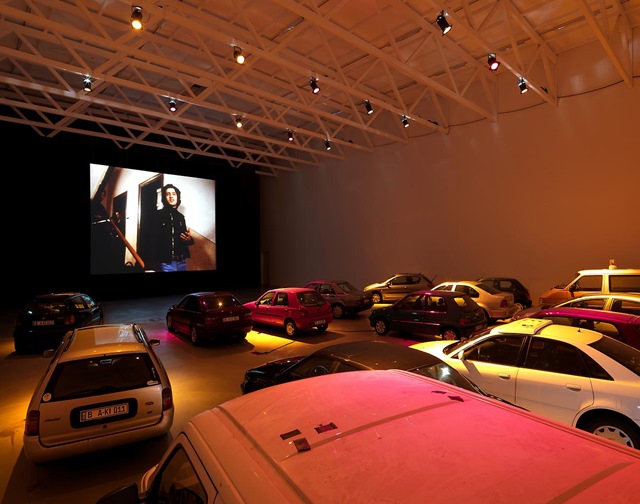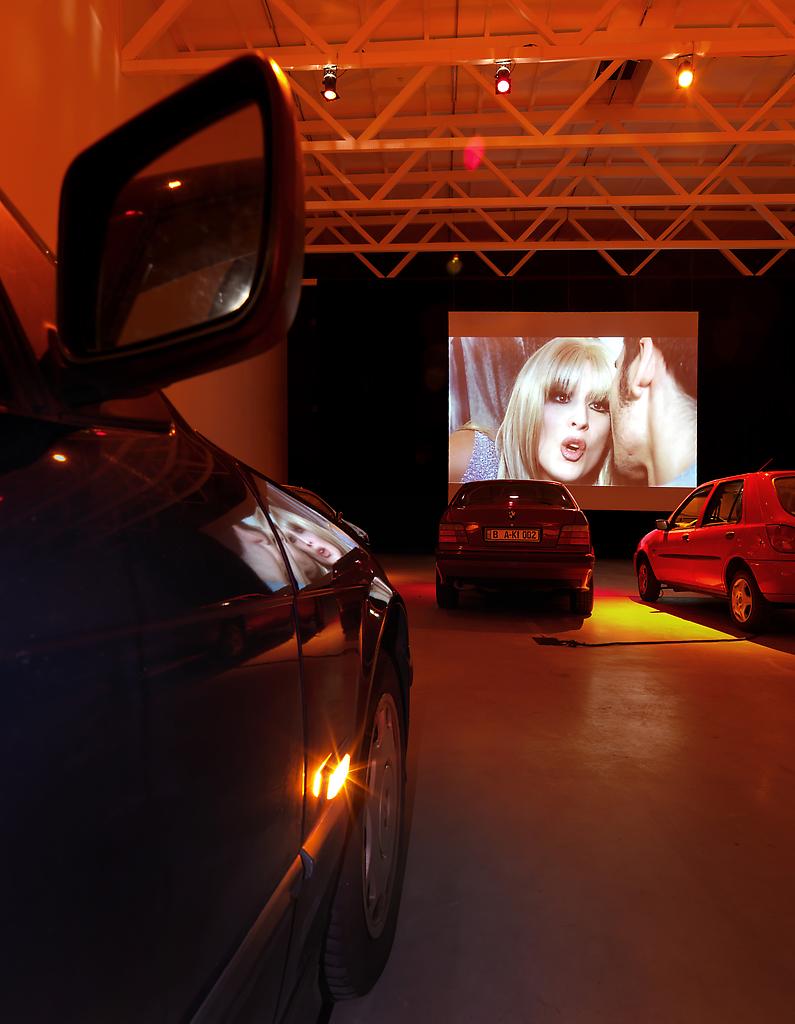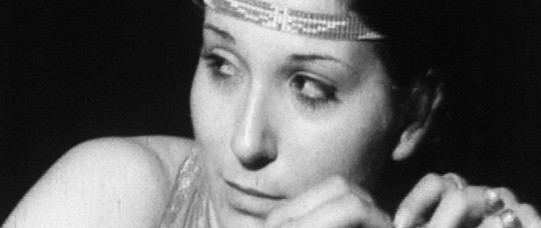Art & Exhibitions
Phil Collins Wants You to Make Babies at His Rooftop Drive-In Movies
The newest iteration takes place in Ramallah, West Bank.

Photo: Jens Ziehe, courtesy Tanya Bonakdar Gallery, New York.
The newest iteration takes place in Ramallah, West Bank.

Brian Boucher


Auto-Kino!, 2010
Programmed by Phil Collins & Siniša Mitrović. Installation view Temporäre Kunsthalle Berlin.
Pictured film: Želimir Žilnik, Inventur – Metzstrasse 11, 1975.Photo: Jens Ziehe, courtesy Tanya Bonakdar Gallery, New York.
The drive-in movie, for British artist Phil Collins, is inescapably intertwined with sex. By the ’50s, he said in a 2010 interview with Die Welt, American teens were borrowing their parents’ cars to go to the drive-in to fool around and take drugs. To coincide with the Berlinale film festival in Germany that year, he staged a project, Auto-Kino!, where the public escaped wintry conditions to view an extensive lineup of video art and classic films from their cars, while parked inside the Temporäre Kunsthalle.
“If the Auto-Kino produces a baby, I would be delighted to film the birth,” he said in the interview.
Under the name Cinema Sayara, Collins has revived the project for the Fifth Riwaq Biennale, taking place in Ramallah, West Bank. To curate the diverse film program, which runs through June 16, Collins got help from artists like Hugo Boss Prize winner Emily Jacir, filmmakers including Peggy Ahwesh, and members of the Ramallah Islamic Club.
Leading off the festivities last night, provocatively enough, was Gillo Pontecorvo’s 1966 classic, The Battle of Algiers, based on Algerian resistance to French colonial forces. Upcoming picks include some of Collins’ own films; Marxism Today (prologue) screens on May 24, along with his film, Use! Exchange! Value! The international program includes films by artists like Marcel Broodthaers, along with cinema classics like Jacques Demy’s The Umbrellas of Cherbourg (1964).
The program features many Middle Eastern filmmakers, such as Maha Maamoun, with a 2009 film about the pyramids; Khadijeh Habashneh, who documents the Tall El Zaatar refugee camp; and Christian Ghazi, whose award-winning Hundred Faces for a Single Day (1971), a study of Lebanese society, is banned in Syria, the director told the Daily Star.

Auto-Kino!, 2010
Programmed by Phil Collins & Siniša Mitrović. Installation view Temporäre Kunsthalle Berlin.
Pictured film: Bruce LaBruce, The Raspberry Reich, 2004.Photo: Jens Ziehe, courtesy Tanya Bonakdar Gallery, New York.
Though admission is free, there are just 21 tickets available per night. Others can watch from area balconies while accessing the sound via FM radio. It all takes place on the rooftop of Beit Saa, a building dating from 1910 that the biennial recently renovated with help from the Institute de Patrimoine Wallon and Wallon Bruxelle International.
Home to about 27,000 people, the occupied city of Ramallah boasts a lively nightlife; a cultural landscape including Radio Nisaa, a female-focused station, and a music scene boasting found-sound composer Boikutt (Muqata’a), according to a recent report in the Guardian.
Ramallah-based artist Khaled Jarrar was banned by Israel from coming to the US last year when he was to take part in a discussion at the New Museum in New York, as part of its exhibition “Here and Elsewhere,” devoted to the art of the Arab world (see Palestinian Artist Barred from Attending New Museum Show).

Still from Hundred Faces for a Single Day (1971), dir. by Christian Ghazi. Image: Palestinian Film Foundation.